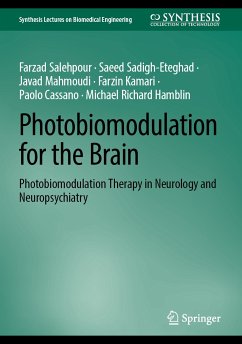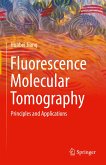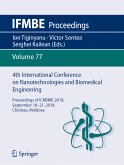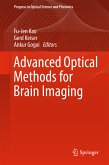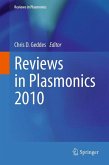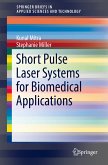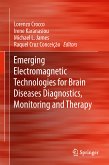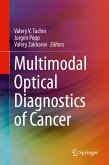Photobiomodulation for the Brain (eBook, PDF)
Photobiomodulation Therapy in Neurology and Neuropsychiatry


Alle Infos zum eBook verschenken

Photobiomodulation for the Brain (eBook, PDF)
Photobiomodulation Therapy in Neurology and Neuropsychiatry
- Format: PDF
- Merkliste
- Auf die Merkliste
- Bewerten Bewerten
- Teilen
- Produkt teilen
- Produkterinnerung
- Produkterinnerung

Hier können Sie sich einloggen

Bitte loggen Sie sich zunächst in Ihr Kundenkonto ein oder registrieren Sie sich bei bücher.de, um das eBook-Abo tolino select nutzen zu können.
Photobiomodulation for the Brain: Photobiomodulation Therapy in Neurology and Neuropsychiatry collects scientific evidence covering a broad range of topics, including the optimum dosimetry, treatment regimens, irradiation sites, irradiance and fluence, treatment times, and possible side effects of this neuromodulation therapy. Over the past two decades, brain photobiomodulation (PBM) therapy has been introduced as an innovative modality for stimulating neural activity to improve brain function and is predicted to become a promising strategy for neurorehabilitation in the coming years. This…mehr
- Geräte: PC
- ohne Kopierschutz
- eBook Hilfe
- Größe: 3.63MB
- -29%11
![Fluorescence Molecular Tomography (eBook, PDF) Fluorescence Molecular Tomography (eBook, PDF)]() Huabei JiangFluorescence Molecular Tomography (eBook, PDF)121,95 €
Huabei JiangFluorescence Molecular Tomography (eBook, PDF)121,95 € ![4th International Conference on Nanotechnologies and Biomedical Engineering (eBook, PDF) 4th International Conference on Nanotechnologies and Biomedical Engineering (eBook, PDF)]() 4th International Conference on Nanotechnologies and Biomedical Engineering (eBook, PDF)113,95 €
4th International Conference on Nanotechnologies and Biomedical Engineering (eBook, PDF)113,95 €![Advanced Optical Methods for Brain Imaging (eBook, PDF) Advanced Optical Methods for Brain Imaging (eBook, PDF)]() Advanced Optical Methods for Brain Imaging (eBook, PDF)73,95 €
Advanced Optical Methods for Brain Imaging (eBook, PDF)73,95 €![Reviews in Plasmonics 2010 (eBook, PDF) Reviews in Plasmonics 2010 (eBook, PDF)]() Reviews in Plasmonics 2010 (eBook, PDF)161,95 €
Reviews in Plasmonics 2010 (eBook, PDF)161,95 €![Short Pulse Laser Systems for Biomedical Applications (eBook, PDF) Short Pulse Laser Systems for Biomedical Applications (eBook, PDF)]() Kunal MitraShort Pulse Laser Systems for Biomedical Applications (eBook, PDF)40,95 €
Kunal MitraShort Pulse Laser Systems for Biomedical Applications (eBook, PDF)40,95 €![Emerging Electromagnetic Technologies for Brain Diseases Diagnostics, Monitoring and Therapy (eBook, PDF) Emerging Electromagnetic Technologies for Brain Diseases Diagnostics, Monitoring and Therapy (eBook, PDF)]() Emerging Electromagnetic Technologies for Brain Diseases Diagnostics, Monitoring and Therapy (eBook, PDF)73,95 €
Emerging Electromagnetic Technologies for Brain Diseases Diagnostics, Monitoring and Therapy (eBook, PDF)73,95 €![Multimodal Optical Diagnostics of Cancer (eBook, PDF) Multimodal Optical Diagnostics of Cancer (eBook, PDF)]() Multimodal Optical Diagnostics of Cancer (eBook, PDF)113,95 €
Multimodal Optical Diagnostics of Cancer (eBook, PDF)113,95 €-
-
-
- Describes using transcranial photobiomodulation therapy to improve brain function
- Covers basic science, optimum parameters, biochemical mechanisms, pre-clinical studies, and clinical applications
- Reviews applications to neurodegenerative disorders, traumatic brain disorders, and a variety of psychiatric diseases
Dieser Download kann aus rechtlichen Gründen nur mit Rechnungsadresse in A, B, BG, CY, CZ, D, DK, EW, E, FIN, F, GR, HR, H, IRL, I, LT, L, LR, M, NL, PL, P, R, S, SLO, SK ausgeliefert werden.
- Produktdetails
- Verlag: Springer International Publishing
- Seitenzahl: 367
- Erscheinungstermin: 19. August 2023
- Englisch
- ISBN-13: 9783031362316
- Artikelnr.: 68632218
- Verlag: Springer International Publishing
- Seitenzahl: 367
- Erscheinungstermin: 19. August 2023
- Englisch
- ISBN-13: 9783031362316
- Artikelnr.: 68632218
- Herstellerkennzeichnung Die Herstellerinformationen sind derzeit nicht verfügbar.
Paolo Cassano, M.D., Ph.D., is an Assistant Professor in Psychiatry at the Harvard Medical School and Director of Photobiomodulation at the Massachusetts General Hospital (MGH) Division of Neuropsychiatry and the MGH Depression Clinical and Research Program. He graduated from the MGH-McLean Adult Psychiatry Residency Program in June 2009. Since 2009,he has served as principal investigator (PI) on multiple studies on transcranial photobiomodulation (tPBM) for several neuropsychiatric disorders, such as major depressive disorder (MDD) and generalized anxiety disorder (GAD), sponsored by the Brain and Behavior Research Foundation (NARSAD), the Dupont Warren/Livingston Fellowship from Harvard Medical School, and private companies. These groundbreaking projects - in collaboration with the MGH Wellman Center for Photomedicine - have led to promising results and demonstrated the preliminary efficacy of near-infrared radiation for the treatment of mood disorders and for ameliorating cognition. Considerable press attention stemmed from these studies, with CNN and Washington Post coverage at the national level. He is actively pursuing the identification of biological targets of the effects of tPBM at the MGH Laboratory for Neuropsychiatry and Neuromodulation, where he has been the PI on a pilot study to investigate the impact of tPBM on cerebral blood flow (Diffuse Correlation Spectroscopy - DCS), on brain electrical activity (electroencephalography - EEG), autonomic reactivity (heart rate variability - HRV and skin conductance - SCR), and cognition in healthy subjects. Dr. Cassano is particularly interested in studying tPBM, as a pro-cognitive intervention, in patients with cognitive impairment and has reported with other groups on tPBM to treat chronic traumatic brain injury and Down syndrome and enhance cognition in healthy volunteers. Dr. Cassano's tPBM research is funded by the National Institute of Mental Health (NIMH), the National Institute of Aging (NIA), the Alzheimer Association "Part the Cloud," and the Down Syndrome Research Foundation (UK). In Nov 2016, he co-founded a neurotech company, Niraxx Light Therapeutics Inc., to facilitate the technology transfer from translational research to readily available products for the general public.
Saeed Sadigh-Eteghad, M.Pill, Ph.D., is a principal investigator and an Associate Professor at the Neurosciences Research Center, Tabriz University of Medical Sciences. He was trained as a translational neuroscientist and received his Ph.D. from Tabriz University of Medical Sciences. His research interests lie in the areas of learning and memory mechanisms, brain aging, Alzheimer's disease, nicotine, nicotinic acetylcholine receptors, brain photobiomodulation, and cognitive rehabilitation. He works with various researchers at different levels, including post-doctoral fellows, visiting scientists, and graduate students. Several funding agencies support his research program. He has published several peer-reviewed articles, conference proceedings, book chapters, and international abstracts. He is an associate editor for the Journal of Experimental and Clinical Neurosciences. Further, he has several projects in progress at various stages of completion and has been a visiting researcher at universities in Denmark and Japan.
Javad Mahmoudi, Ph.D., is an associate professor at the Neurosciences Research Center of Tabriz University of Medical Sciences, where he has been an academic staff member since 2014. He completed his undergraduate studies at Azad University and received his Ph.D. in Pharmacology from the same university. His first area of research is the development of therapeutic strategies for the treatment of neurodegenerative conditions. The second area focuses on the treatments for emotional and cognitive impairments resulting from stressors factors, including spatial restriction and insomnia, as well as noise and heat stresses. Dr. Mahmoudi is a member of the Iranian Neuroscience and the Iranian Physiology and Pharmacology Societies.
Farzin Kamari, M.D., M.P.H., is an accomplished researcher with considerable experience in computational neuroscience, medicine, and public health. He currently serves as a research associate at the Department of Neurophysiology within the Institute of Physiology at the University of Tübingen in Germany, and is additionally affiliated with the International Max Planck Research School for the Mechanisms of Mental Function and Dysfunction, also located in Tübingen, Germany. He earned his Doctor of Medicine (MD) and Master of Public Health (MPH) degrees from the Tabriz University of Medical Sciences in Iran. Dr. Kamari's research interests are focused at the intersection of neuroscience, medicine, and technology, with a particular emphasis on leveraging technical and computational approaches to enhance brain function and mental health. He has honed his unique interdisciplinary skills through his achievements as an entrepreneur, including co-founding Synaptic ApS, an innovative company based in Odense, Denmark. The company specialized in AI applications in medicine and has secured several rounds of funding from prominent sources, including the EU Horizon 2020 program and other funding agencies. Throughout his career, Dr. Kamari has co-authored several peer-reviewed publications in internationally esteemed scientific journals and has contributed to a number of patents in the fields of diagnostics, neuroscience, and medicine
Michael R Hamblin, Ph.D., was a Principal Investigator at the Wellman Center for Photomedicine at Massachusetts General Hospital, an Associate Professor of Dermatology at Harvard Medical School for 25 years, and is now a Distinguished Visiting Professor at the University of Johannesburg, South Africa and affiliated faculty at Radiation Biology Research Center, Iran University of Medical Sciences, Tehran, Iran. He gained his PhD in organic chemistry from Nottingham Trent University in England. His research interests include photodynamic therapy, photobiomodulation, drug delivery, nanomedicine, and tissue engineering. His research program was supported by NIH, CDMRP, USAFOSR and CIMIT. He has published over 750 peer-reviewed articles, over 150 conference proceedings, book ch^ 90,000 citations. He has authored/edited 36 textbooks on PDT, photomedicine, and nanomedicine including 13 SPIE proceedings. Dr Hamblin was elected as a Fellow of SPIE in 2011, received the 1st Endre Mester Lifetime Achievement Award from NAALT in 2017, the Outstanding Career Award from the Dose Response Society, the 1st Ali Javan award for Photobiomodulation Basic Science Research from WALT in 2018, and the Lifetime Achievement Award from European Medical Laser Association in 2022.
